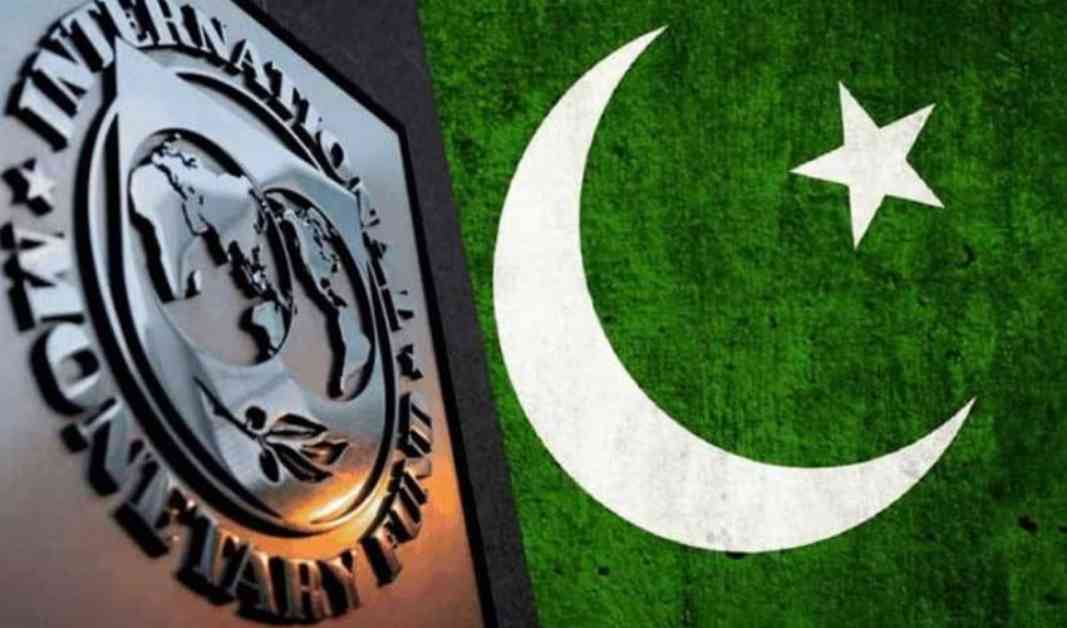The International Monetary Fund’s mission to Pakistan has sparked interest and concern, as they delve into a comprehensive governance and corruption assessment. This detailed diagnostic assessment, named the Pakistan Governance and Corruption Diagnostic Assessment, marks a significant milestone in the country’s efforts to address critical issues surrounding the rule of law, anti-corruption measures, and financial oversight.
Starting on Thursday, this groundbreaking mission is set to explore a wide range of topics, including the appointment process of judges, judicial integrity, and independence. Scheduled to wrap up on February 14, the IMF team will engage with representatives from various government ministries, departments, and state organs, with a particular focus on the Judicial Commission of Pakistan and the Supreme Court of Pakistan.
This mission comes at a crucial time, coinciding with concerns raised by judges from the Islamabad High Court and the Supreme Court regarding the appointment process of judges in the superior judiciary. The recent 26th Constitutional Amendment has introduced significant changes, granting a role to politicians in the selection process, adding complexity to an already intricate system.
Assessing Judicial Integrity and Independence
One of the key highlights of this mission is the scheduled meeting with the Judicial Commission of Pakistan and the Supreme Court of Pakistan to delve into crucial areas such as judicial integrity and independence. These discussions are vital as they form the bedrock of a fair and transparent legal system. The IMF aims to provide a comprehensive assessment that will shed light on the strengths and weaknesses of Pakistan’s judiciary, paving the way for meaningful reforms.
In a statement, the IMF emphasized the importance of effective governance frameworks and independent anti-corruption institutions in fostering sound policy-making and countering vested interests. These pillars are essential for driving sustainable structural reforms and fostering a conducive environment for investment and economic growth.
Strengthening Anti-Corruption Measures
Another significant focus of the IMF mission is to collaborate with institutions like the National Accountability Bureau and the Financial Monitoring Unit to develop robust anti-corruption strategies. By analyzing the nature and severity of corruption, along with enhancing anti-corruption law enforcement, including money-laundering investigations and prosecutions, the IMF aims to bolster Pakistan’s efforts in combating financial crimes.
The IMF’s emphasis on addressing money laundering proceeds from domestic corruption underscores the urgency of implementing effective risk mitigation strategies. By engaging with entities like the National Anti-Money Laundering Authority and Combating Financing of Terrorism Authority, the mission aims to assess Pakistan’s readiness to tackle this persistent challenge head-on.
The road ahead for Pakistan involves a series of engagements with various stakeholders, including the Ministry of Law and Justice, the State Bank of Pakistan, and the Federal Board of Revenue. These interactions will provide valuable insights into the governance structures, legal frameworks, and operational capacities that underpin the country’s efforts to combat corruption and uphold the rule of law.
As the IMF’s mission unfolds, the spotlight will be on Pakistan’s commitment to transparency, accountability, and good governance. By leveraging the expertise and resources of the global lender, Pakistan is poised to embark on a transformative journey towards a more resilient and corruption-free future. In the coming months, the findings and recommendations from this diagnostic assessment will play a pivotal role in shaping Pakistan’s governance landscape and setting the stage for sustainable growth and development.









